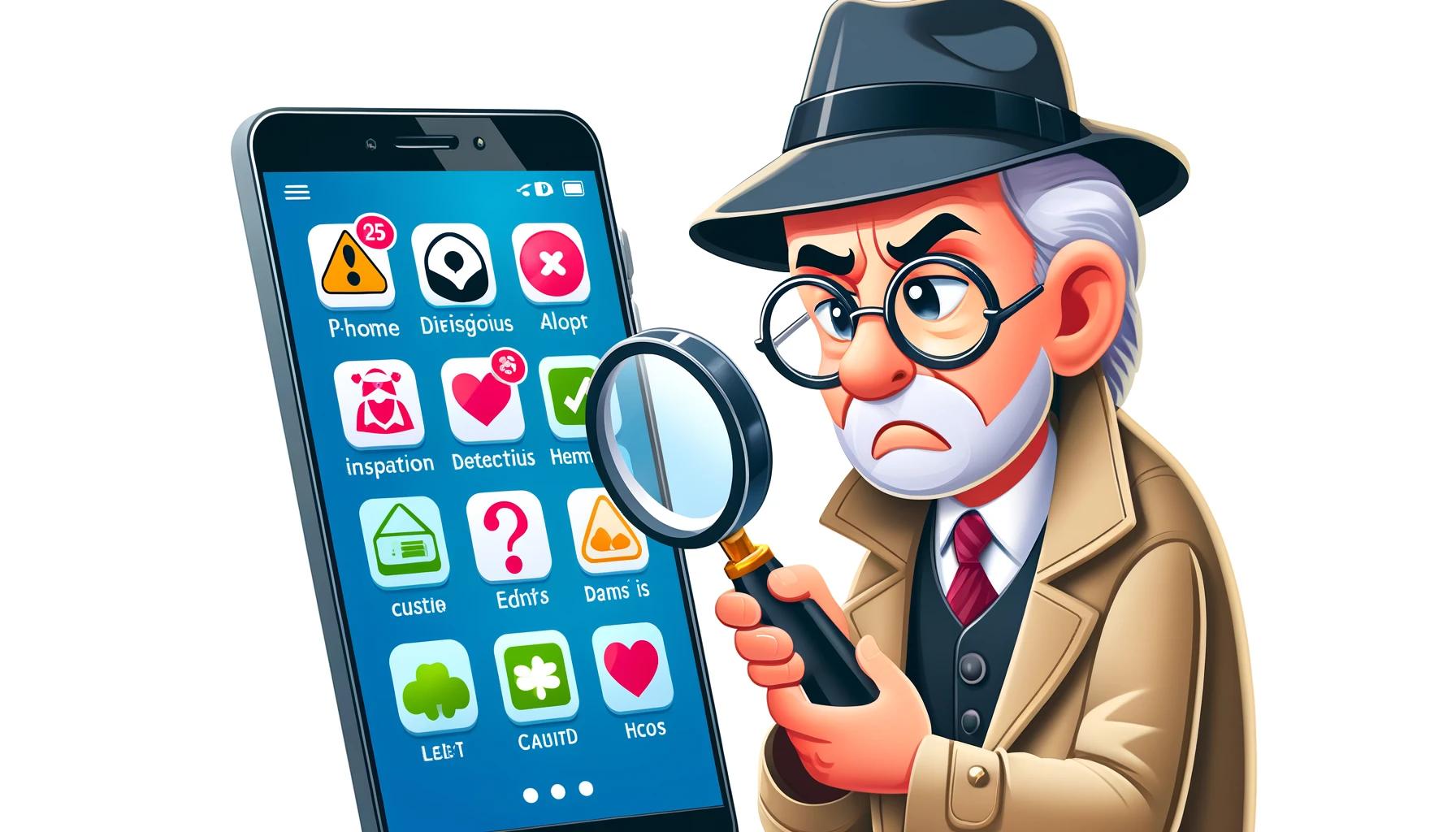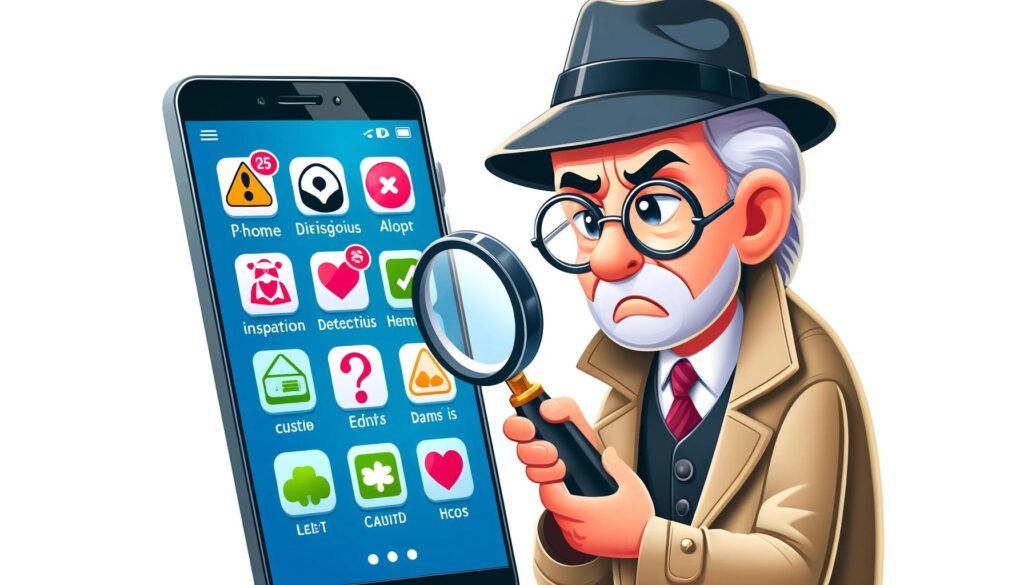
Newsletter Subscribe
Enter your email address below and subscribe to our newsletter

Imagine receiving a call from someone claiming to be a police officer. They tell you your bank account might be involved in financial fraud.
To help with the investigation, they ask you to download a special app. It all looks very official, with case numbers and legal-looking documents. But beware—this app is a trap.

Once installed, the app asks for your bank details and personal information.
But that’s not all. The app blocks also all incoming calls and texts, so you won’t get alerts from your bank about suspicious activity.
Before you can say “scam,” these digital crooks have made off with your cash and sensitive information, leaving you wondering what hit you.
Fake apps like these are impressively complex and dangerously convincing.
We want you to stay one step ahead by learning how to spot them before they can do any damage. In this article, we’ll show you how to protect yourself and your information.
Fake apps are designed to trick you into thinking they’re the real deal, but they’re actually created by cyber criminals to harm you and your devices.
These sneaky apps might look just like the ones you know and love, but they’re hiding some nasty surprises, like annoying ads, spying on your activity, and even stealing your personal information.
These phony apps can make your life miserable in all sorts of ways. They might invade your privacy by accessing your location, camera, or microphone.
Some can even infect your phone with malware, like adware that bombards you with ads, spyware that monitors your every move, or ransomware that locks up your device until you pay up.
Others might try to scam you by selling fake goods or services or trick you into giving away your personal information.
You might be surprised to learn that fake apps can sneak into official app stores like Google Play or the Apple App Store.
Even though these stores review every app submitted, some still slip through the cracks. It’s like trying to find a needle in a haystack!
While they can be hard to spot, there are some things you can do to protect yourself. Here are some of the red flags to look out for before downloading and installing a new app:
If an app has a low rating and lots of user complaints, that’s a big red flag. But be careful—if the reviews seem too good to be true, they might be fake ones created by the app’s developers to trick you.
Popular apps usually have millions or even billions of downloads. If a well-known app only has a few thousand, it could be a fake. But some sneaky fakes might have a high number of downloads, so also check the ratio of downloads to reviews.
Do a quick Google search of the developer’s name. If they’re legit, you should find info about their reputation and other apps they’ve created. Watch out for names that are similar to well-known companies but with a few letters changed.
This one is super important! Before downloading, take a peek at the permissions the app is asking for. If a simple app like a flashlight wants access to your contacts or a calculator needs your photo gallery, that’s a big no-no.
Most popular apps have been around for a while. If you see a “famous” app with a recent release date but a high number of downloads, it could be a fake. Newer apps also haven’t had as much time to accumulate negative reviews or be reported as malware.
Real app developers usually have a team of editors to make sure everything is spelled correctly and reads well. If you spot obvious errors in the app name or description, proceed with caution.
Many fake apps use low-quality images or screenshots that look photoshopped. If the branding looks sloppy or unprofessional, it could be a fake.
Fake apps often use icons that look similar to the real deal, but with slight differences in color or design. If something seems off, take a closer look.
If an app is asking for sensitive info like passwords or credit card details right off the bat, that’s a big red flag. Stick to apps from well-known, reputable developers.
While many legit apps have ads, fake apps often take it to the extreme. If an app is so overloaded with ads that it’s nearly impossible to use, it’s probably a fake.
If something about an app seems too good to be true or just doesn’t feel right, don’t download it. Better safe than sorry!
Hackers love to create fake versions of popular apps. So be especially careful before installing an app in categories like:
The best way to protect yourself is to be cautious and informed. Always double-check before downloading an app, and if something seems suspicious, trust your gut and find a safer alternative.
With these tips in mind, you’ll be able to enjoy the amazing world of apps without falling for the fakes!